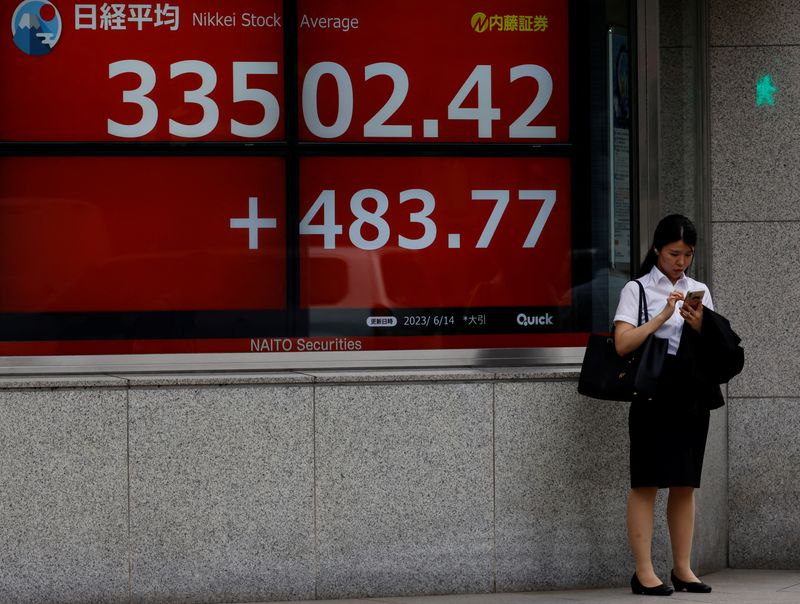By Anton Bridge
TOKYO (Reuters) - The Tokyo Stock Exchange's (TSE) move to release a list of firms that have disclosed plans to increase their capital efficiency is its latest attempt to improve long-languishing Japanese valuations and attract overseas investors.
Over the past decade, both the TSE and the government have steadily pushed to improve governance at listed companies, efforts that investors have hailed as a remedy for the unusually high number of stocks that trade below book value, or less than the value of their assets.
The bourse's moves have strengthened optimism about the outlook for Japanese stocks, helping power the benchmark Nikkei to a 28% surge last year.
WHAT IS THE LIST?
From Monday, the TSE will begin releasing on a monthly basis a list of companies that have disclosed plans to increase their capital efficiency.
Companies have no legal obligation to disclose the plans and will not face punishment if they don't comply. Nevertheless, the publication of the list is expected to serve as a way to indirectly "name and shame" those who don't make the cut - and prompt them to take action.
WHY IS THE TSE CALLING FOR CHANGE?
For years Japan has struggled to shake off its reputation as a "value trap" - a market where stocks were cheap and will remain so.
Around half of Japan's listed companies trade below their book value. The TSE has taken an increasingly pro-active stance to combat that, tightening listing criteria for its "prime" section, raising the requisite market cap and free float, and applying more stringent disclosure rules around governance, diversity and sustainability.
The TSE called for better capital efficiency by listed companies in March, but only 20% of companies listed on the "prime" market had disclosed specific measures as of July.
The exchange first launched a Corporate Governance Code in 2015 and its basic principles have near 100% compliance. But some of the exchange's supplementary requests, such as setting targets for the promotion of women, foreign nationals and mid-career hires to management, have lower adherence, which stood at 73% for "prime" companies as of July 2022.
WHAT HAVE COMPANIES BEEN DOING SO FAR?
The TSE's call for better capital efficiency last year has already sparked a slew of share buybacks, as well as the unwinding of cross-shareholdings and management buyouts that take companies private in a bid to escape shareholder pressure.
In 2023, buybacks among companies in the TOPIX index, which contains a broad spread of over 2,000 domestic companies, hit 9.39 trillion yen ($65 billion), the highest on record and more than double the figure for 2017, according to SMBC Nikko Securities data.
Japan also has seen a surge in management buy-outs. In a Reuters poll conducted in November 2023, 85% of listed firms said they were feeling more listing-related "burdens", with most naming increased disclosure requirements, including the call for improved use of capital, as a burden.
WHY ISN'T THE BOURSE METING OUT PUNISHMENT?
Unlike other countries, companies in Japan tend to respond well to "naming and shaming" and the practice is often used by regulators to nudge corporations to change their behaviour.

The chief of Mizuho Financial Group's trust banking unit told Reuters last year that the disclosure of compliant companies has been creating change in laggards as many companies "care hugely about what others in the same industry or in the same region are doing."
($1 = 145.2100 yen)